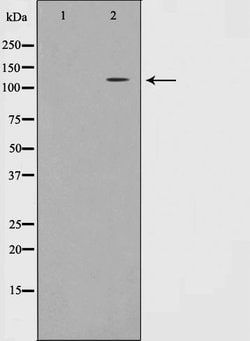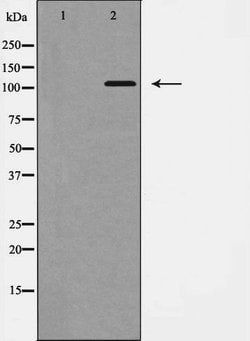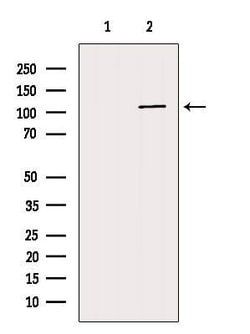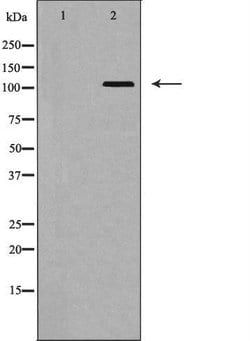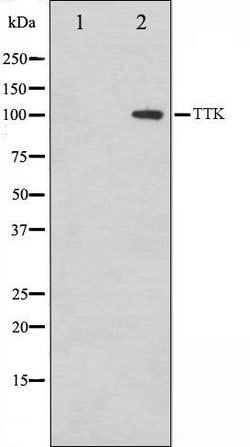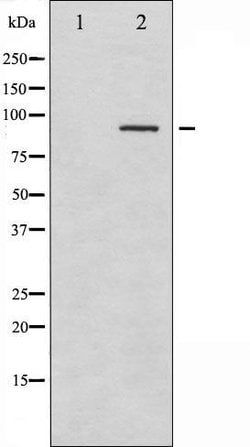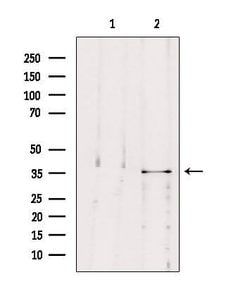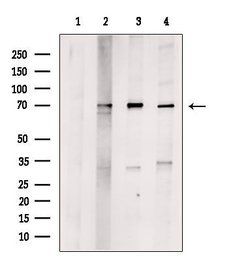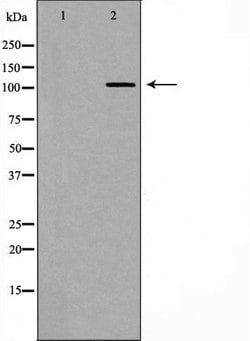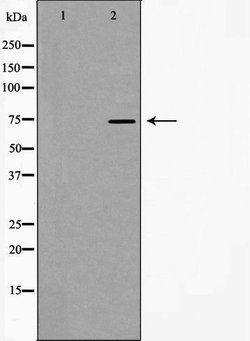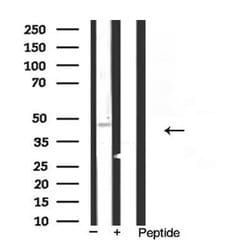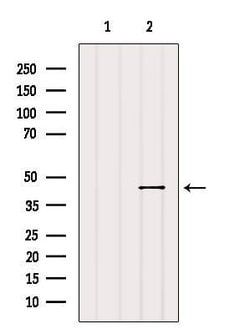EphB4 Polyclonal Antibody, Invitrogen™
Manufacturer: Thermo Scientific
Select a Size
| Pack Size | SKU | Availability | Price |
|---|---|---|---|
| Each of 1 | PIPA599437-Each-of-1 | In Stock | ₹ 46,502.50 |
PIPA599437 - Each of 1
In Stock
Quantity
1
Base Price: ₹ 46,502.50
GST (18%): ₹ 8,370.45
Total Price: ₹ 54,872.95
Antigen
EphB4
Classification
Polyclonal
Conjugate
Unconjugated
Gene
EPHB4
Gene Alias
AI042935; Developmental kinase 2; EPH receptor B4; Ephb4; ephrin receptor EphB4; ephrin type-B receptor 4; Hepatoma transmembrane kinase; HTK; Mdk2; mDK-2; MYK1; soluble EPHB4 variant 1; soluble EPHB4 variant 2; soluble EPHB4 variant 3; TYRO11; Tyrosine kinase MYK-1; tyrosine-protein kinase receptor HTK; tyrosine-protein kinase TYRO11
Host Species
Rabbit
Purification Method
Affinity chromatography
Regulatory Status
RUO
Gene ID (Entrez)
13846, 2050, 686310
Content And Storage
-20°C
Form
Liquid
Applications
Immunohistochemistry (Paraffin), Western Blot
Concentration
1 mg/mL
Formulation
PBS with 50% glycerol and 0.02% sodium azide; pH 7.4
Gene Accession No.
P54760, P54761
Gene Symbols
EPHB4
Immunogen
A synthesized peptide derived from human EPHB4(Accession P54760), corresponding to amino acid residues Y581-R631.
Quantity
100 μL
Primary or Secondary
Primary
Target Species
Human, Mouse, Rat
Product Type
Antibody
Isotype
IgG
Description
- Antibody detects endogenous levels of total EPHB4
- EPHB4 is a receptor tyrosine kinase that belongs to the ephrin receptor family
- Members of the Eph family of kinases play important roles in diverse biological processes including nervous system development, angiogenesis and neural synapsis formation and maturation
- Based on their structures and sequence relationships, ephrins are divided into the ephrin-A (EFNA) class, which are anchored to the membrane by a glycosylphosphatidylinositol linkage, and the ephrin-B (EFNB) class, which are transmembrane proteins
- The Eph family of receptors are divided into 2 groups based on the similarity of their extracellular domain sequences and their affinities for binding ephrin-A and ephrin-B ligands
- Ephrin receptors make up the largest subgroup of the receptor tyrosine kinase (RTK) family
- The protein encoded by EphB4 binds to ephrin-B2 and plays an essential role in vascular development.
